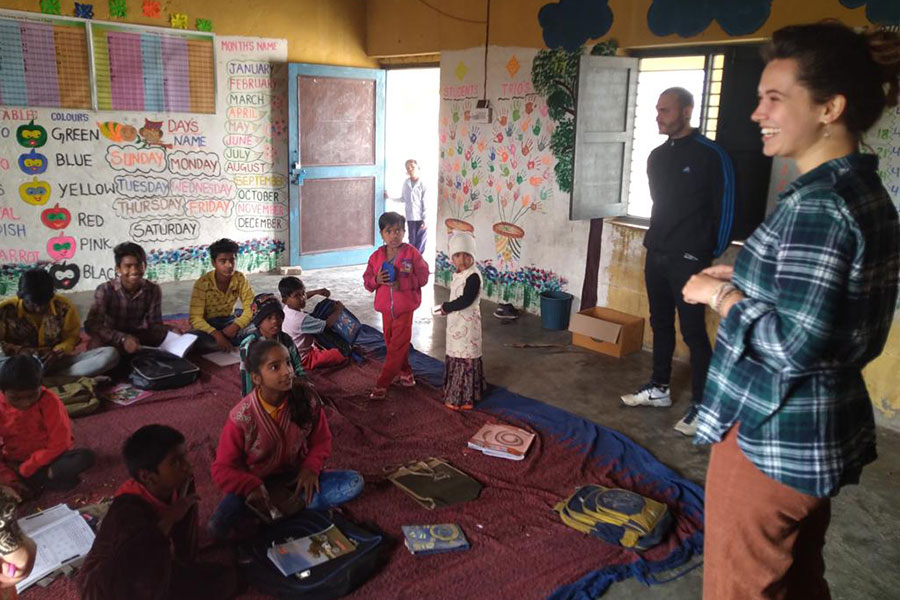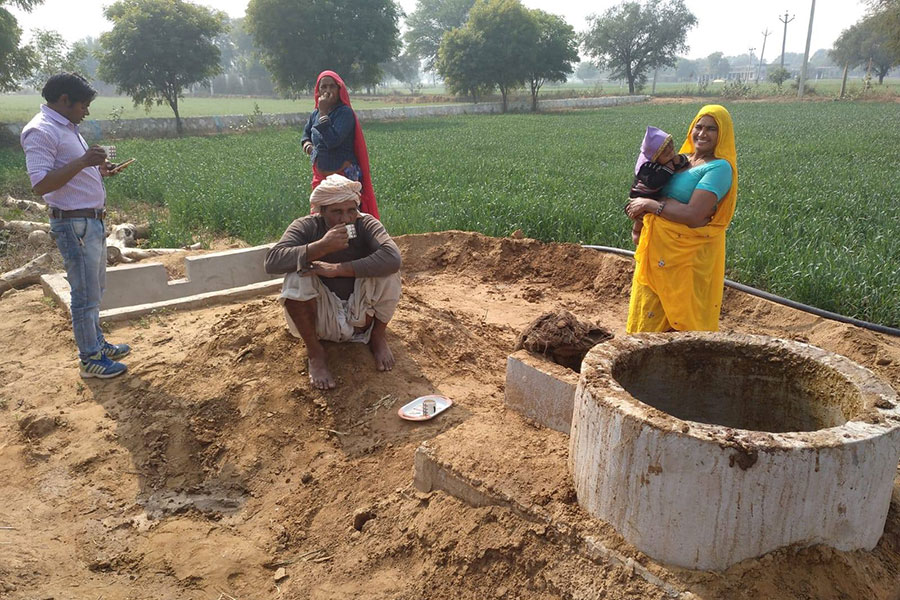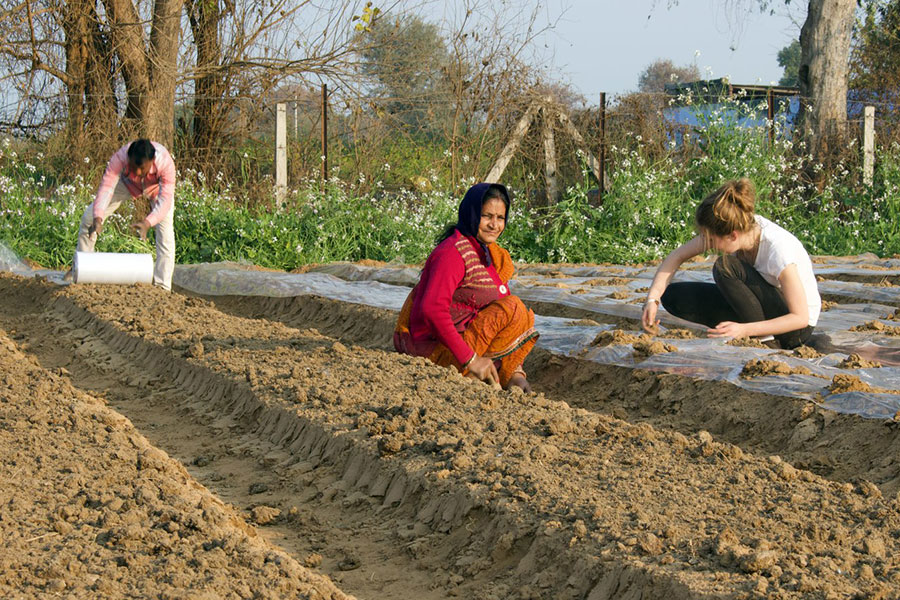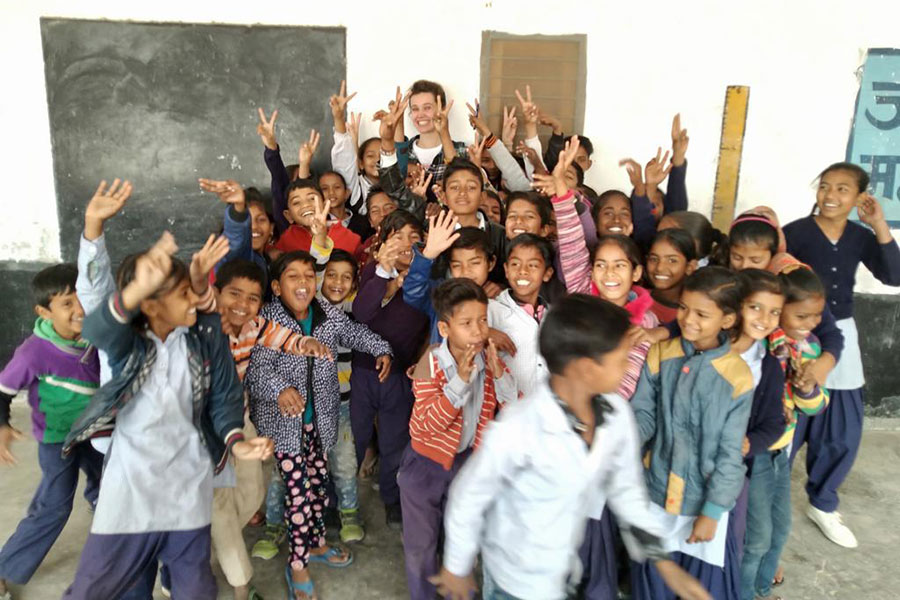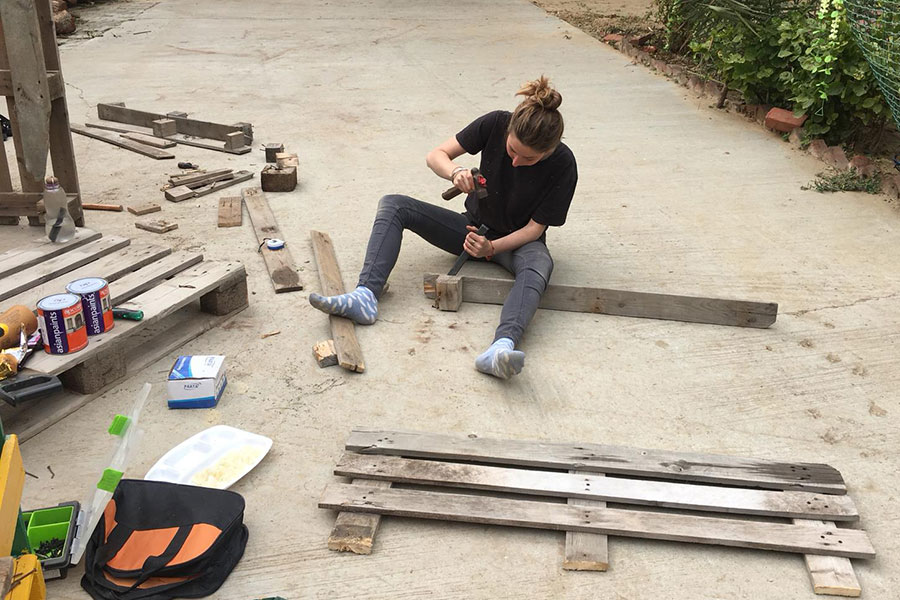From Miguel Carvalho, former volunteer and now teacher for the Climate Activist Team (CATs)
7/3 2019
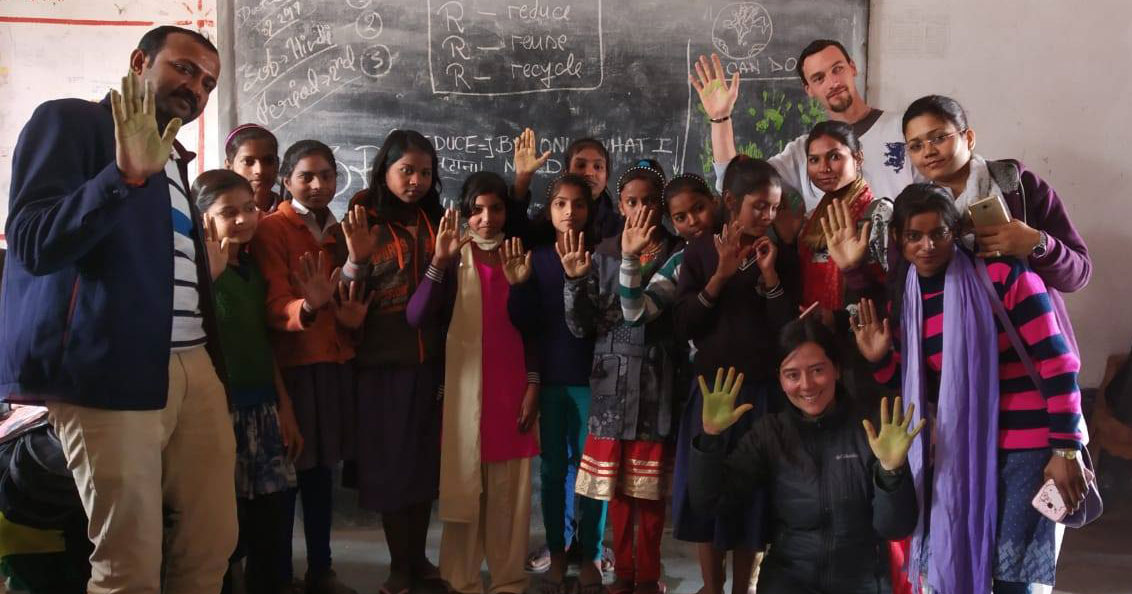
Hello Beautiful people,
I am writing to you to let you know what CATs are doing in India.
I will start with the 1st group - Svenja, Letizia and Alexandra – volunteering at Biogas Project in Dausa (Rajasthan). Beside participating in the daily routines of the project such as visiting biogas plants and participating in the meetings with local communities and facing the language barrier, this group is also in charge of creating a simple step-by-step illustrated guidebook. This guidebook contains instructions of how to build a biogas plant, as well as information about the benefits of biogas, common problems faced and their solutions, and how to receive a government subsidy for this project.
Then we have the 2nd group: Vasile and Margarita, based in Vaishali, Bikram and Arrah (Bihar) working on improving nutrition through the use of fruit gardens. The first steps in this project are visiting potential schools for planting fruit trees, carrying out nutrition awareness activities and evaluating the knowledge about a healthy diet and the environment. In order to achieve these goals, meetings are held with the principals in order to present the project. Evaluations of the characteristics of the place are made, such as water resources, number of students, space, security and the needs of the community. Up to this point of the project, 3 Teacher Training colleges and 28 primary schools were visited.
The second step started with the evaluation of the best practices that can be used to bring the concept to the children, such as the importance of fruits and protection of the environment. This was done through giving theoretical and interactive lessons. Up to this point of the project 11 lessons in 4 schools have been carried out.
The 3rd group Mlada and Linh are volunteering at Urban Garden Project in Rajendra Park (Gurgaon), continuing a project that was started by the previous team. This includes the task of building beds for urban gardens and continuing introducing the concept of urban gardening to the locals. During this time Mlada and Linh started looking for spots where the impact of this could be visible for many people and as a result would aid in spreading the concept. They chose Prakash Puri Temple as it is a place that is visited by thousands of people; additionally, it is a place where the visitors can get free meals every day no matter their caste or origin.
In this temple they prepared 8 beds, they concentrated highly on the efficiency of materials used and the minimization of the space that was required for it. They tested out different models of beds and also “vertical” gardening (which is ideal for herbs, flowers and minimizes the soil and space usage).
Since education is an important part of the volunteering (alongside the project in the temple) Linh and Mlada gave English lessons for kids who came every day for the HPPI Step Up Project. In return, and also as an additional task of building self-confidence and English-speaking skills, the kids gave history of India lessons to Mlada and Linh
And finally, the last group of Climate Activists – Adina, Juan and Goda - are volunteering at the Green Action and Garden Farming Projects in Behror.
They started off by visiting all the places where the tree plantations, community and school projects are taking place.
They gave lessons in schools about global warming, its effects, what/who is causing them, how to reduce our impact on the environment, paying special focus on the trees, tree plantations, their environmental, social and economic importance and impact.
They also carried out various activities and lessons informing the students and teachers about the green action program and encouraged them to `adopt´ and take care of the trees that were planted around their schools and community spaces.
As a way to encourage students and teachers to take the responsibility and ownership of the trees they organised activities such as painting small rocks with different ornaments and kids´ names. Together with local volunteers they also showed how to clean around and water the trees to encourage their growth in the plantations.
In the last couple of weeks they cleaned up and replanted trees that did not survive the winter in the existing plantations.
Alongside these activities they also worked in the garden that supplies organic vegetables to Humana´s local headquarter. They prepared the soil for planting. This involved carrying cow dung, covering and mixing it with soil. They also harvested vegetables to send to the NHQ and planted new crops such as onion and watermelons.
During the last week they started a new project – a tree nursery, specifically for the Moringa trees. The plan is to distribute the trees within the local farmers´ community and spread the concept of reforestation of the area. The Moringa trees were chosen as they are a local species, have exceptional health benefits and provide an income for the local families. They started preparing the area for the plantation – digging up the ground and preparing the soil for the seeds.




